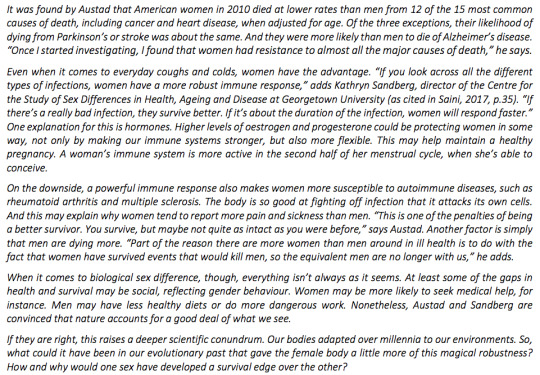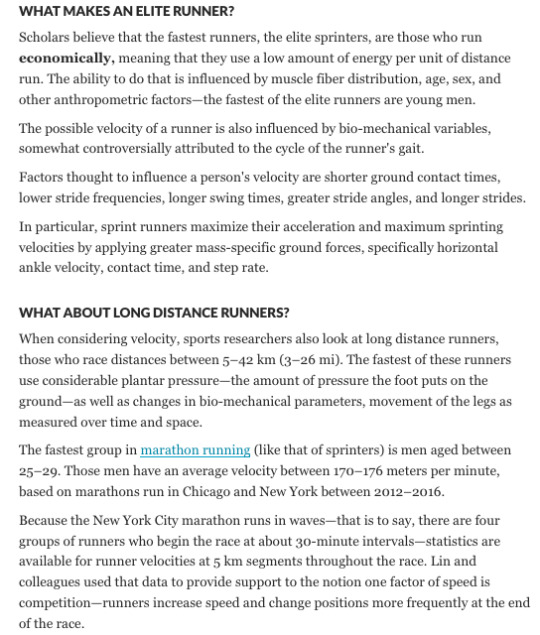#but mostly she makes them patrol th areas. extra security
Photo

i gave up on coloring come get yall milf
#doodles#hades#hades oc#echidna#u kno mommy of monsters#she bullies hades bc he needs her more than she needs him n if he makes her mad she can jus go send her monsters 2 ''bring down'' more souls#but mostly she makes them patrol th areas. extra security#her keepsake is a jar of pet treats tht gives u more uses on ur pets
9 notes
·
View notes
Text
Shady business owners don't like it when you call regulators.
Used to work in private security (rent-a-cop/bacon bits jokes go here). When I was first hired on, thought the company was fairly upstanding yadda yadda because the owner and I would bullshit a little about our respective military careers. "A guy who used to be in pararescue can't be that bad, right?"
First year was relatively normal security work, mostly fixed post (think Walmart door greeter but with a badge and handcuffs) and general "I'll tackle you if you steal things, but otherwise I'm just a breathing security camera" stuff. About a year in, I finish all of my qualifications for armed work and get assigned to patrol. Patrol is basically private police: companies would hire us to make rounds and respond to things at their locations (mostly apartment complexes, and mostly noise complaints or occasionally towing off cars and such, but occasionally managing residents during a fire or breaking up disturbances).
The company handled pay in a kinda wonky manner. Twice a month (on the 1st and 15th) we got paid for two weeks worth of work, and every now and again (it seemed like whenever they felt like it was getting too far behind) we'd get an extra paycheck slipped in with our normal one. I got my first paycheck five weeks after starting, and there was a point where we were receiving December checks in February. Pay rates were determined by the type of work: entry level stuff made $7/hour, more advanced made $8, and armed paid $10. Raises were available on top of that (for the record, I worked there for 3 years and never got a raise, and the two people I know who got raises each got 25¢ an hour after 4 years, also all of this was during a $5.15 minimum wage). Patrol required armed officers but paid as advanced, but was also a guaranteed 42 hours a week on a set schedule (three 12 hour days, a 6 hour day, and three days off) so most of us didn't really complain.
Moving up into patrol taught me a lot about the company that I didn't know. I figured the owner was a little sexist (ex-military types tend to be) but the depths of his sexism caught me a little off-guard. And then there's the racism. I'm Latino but I look white (because I avoid sun like the plague and got my bone structure from my [white] mother's side), though my surname is a dead giveaway: there's a state in Mexico to which I'm apparently related (must be a distant relative on Abuelita's side). I was apparently good enough to be on patrol, but not promotable (even though I worked my fucking ass off, even though supervisors routinely recommended me for promotion) for some reason. Or the fact that we had one black guy on staff, and he was fired for something that other people got away with. The female officer who was assigned the easiest shift because "it's all she can handle" and "this way, it's obvious I'm trying to work with the women." Those are as close to verbatim quotes as I can recall. Or the time he held a contest between patrols for excellence and canceled it after 2 months...two months in which it happened that the female officer won once and took second once, and the Mexican dude won once and took second once. Between those two months, I made an extra $30 in gas cards. WOOO! /s
For frame of reference, here are a couple of things white dudes did that they didn't get fired for: hitting 120mph in a company car in a 40mph zone (after over a year of doing 20+ over), carrying a gun without the proper permit, blatant sexual harassment, admitting to skipping stops on a route and just sending the business a false statement, writing racist slogans on the front of company-provided TASER cartridges (Homie Down is the one I remember), tasing people without proper justification, sleeping on the job, working drunk, etc.
I also learned about how they screwed over clients: this company pays for 12 hours of continuous patrol between their three properties, but the owners want more money so that route also covers 5 apartment complexes and handles cash drops for a couple of stores. Another business pays us $1M a year for 5.5 hours per weeknight and 7.5 hours per weekend night (approximately $450 per hour) and that route jumps off property like clockwork every night to take care of 3-5 other properties at specified times, leaving that client without their only security at key times. This group of apartment complexes pays for 1 hour on property per night, might get half of that if the night is slow because of the workload.
And then he decided to fuck over his staff (more). Patrol was offered a salary (that was 10% less than the minimum legal salary), with the strong implication that if we wanted any hours at all we'd take it. Once we were all salaried (or gone), things shifted over to 48 hour weeks. I did the math at one point and realized that if I watched a movie at the theater and ate twice at fast food on every day off, it was still cheaper for me to not work than to work (because of gas and food while working, considering I walked about 12-15 miles every night as part of the patrols, which requires a fairly brisk pace, which requires calories galore). But if you were scheduled off and they called you in, you either accepted the extra hours or you got chewed out, and if you made a habit of saying no you'd get written up for anything they could think of.
Then one of my colleagues got into an accident at work. He was hospitalized for like 9 days, ended up making a full recovery. But he was in the company car, so according to the company he was responsible for paying the $2500 insurance deductible. I'd had it at that point. I borrowed some money from my mother to talk to a labor attorney. Best $200 I ever spent.
Attorney gave me three pieces of advice:
If there's a problem with the way we're being paid, talk to the labor board.
My colleague was not on the hook for the car. That's why the company had insurance. It wasn't our fault that he was too cheap to spring for a lower deductible.
Document everything, but keep my name out of anything.
I passed word to the injured colleague about the insurance thing, and he lawyered up pretty much immediately (his family had enough money that he didn't have to work). I also made a not-so-anonymous phone call to the state labor board (asking that they not reveal it was me). 3 weeks later, I'm in the office handling post-shift paperwork when the rep comes in. I GTFOed as fast as I possibly could. I didn't want to be there for that whole thing.
Fast forward about 6 months, and the labor board has finished their investigation. Turns out that the salary was in fact too low to be legally allowable, but also that our positions were not legally eligible for salary anyway. So all of those 48/60/72+ hour weeks were full of overtime. Unpaid overtime. Unpaid overtime on which we were owed interest. Also, requiring patrol to be armed but not paying them armed rates wasn't legal (based on the employment contract, any work for which we required that license required we be paid the rate associated with that license). Also, the "twice a month you're paid for 2 weeks of work" thing isn't legal either. So we got several oversized paychecks covering back pay, plus others covering interest (which had to be noted in the check stub as interest on back pay).
The labor board rep couldn't do anything about the ways they were screwing over their customers, but she did have someone she could call. Someone she should call. Someone she did call. A couple weeks later, that investigation started. I don't know all the details (I left during that time to start some higher education) but a few months later they sold the company to someone else, and I heard through the grapevine that part of the reason was that they lost several contracts and all that back pay pretty much wiped out their savings (I got something like $8K in back pay, and there were another dozen patrol officers in that time frame, so I figure around $100K total went out just to patrol, and apparently there were some discrepancies in how they managed fixed post staff as well) and they had to move to a smaller house. The rumors also said that after the sale, the new owners renegotiated all the contracts (including getting a few that the previous owners had lost to being shady) and somehow they're still profitable (even after giving raises and whatnot). It's almost like the previous owners had just been trying to milk everyone for as much as they could get.
Oh, and an aside: I got to know the manager of that business that paid us $1M/year pretty well afterwards. She neither confirmed nor denied that $1M figure. So take it with a grain of salt, but if it's true (she manages the most affluent shopping center in town, which includes a restaurant where prices aren't on the menu because "if you have to ask, you can't afford it") that one contract would cover all the expenses of all of patrol. The owners always seemed really intent on keeping her happy (and made sure that we knew not to tell her we left the area for any reason except end of shift). And they always had money to spend on things like a large house in one of the more affluent areas, and the private school for their daughter, and buying a new gun or two (higher priced stuff, where the name stamp adds $1500 to the price) every couple of weeks...
(source) (story by m4dn3zz)
213 notes
·
View notes
Note
So do you follow Johnson's advice to Florence, "to run as a man, you must train like a man"? One other point, do you think you have plateaued, leveled off and must now move to your next plateau in order to exceed your old times?
Nope I don’t!One thing I’ve never adhered to as anindividual and as an athlete is double standards. I have never agreed with the oldsaying that men are better than women. Physicalstrength can be defined in different ways. Women bubble with a source of powerthat even science has yet to fully understand. They tend to be better survivorsthan men. What’s more, they are born this way. Note, don’t get me wrong here itis true however that biologically speaking men produce more testosterone thanwomen. One of the main reasons why, in my opinion it is near impossible for awoman to ever become the fastest human on Earth is because men have the biological advantage ofproducing more testosterone. But if we think about it, Florence Joyner Griffithis the 4th fastest human on the planet, she is so close to AsafaPowell’s time. I personally believe that a younger Flo Jo given the propertools and conditions could have been the 3rd fastest person on Earth– keep in mind that Flo was 28 when she became the fastest women on Earth. Also,note I’mcertainly not going to engage in a “men versus women” battle. Both men andwomen have strengths and weaknesses. Weare equal but different. Those differences are complementary and should becelebrated rather than eroded.It’s not about training like a man, it’s all about training harder. When I look at men training duringtrack practices they often tend to be physically harder and more demanding thanthose of women. I remember once when I first got into track, it was weightlifting day and the coach separated the guys and the girls – we were doing thesame drills, but different with weight. The twist here is that I was placedwith the boys.I have always been on the thicker side (like Rosa Acosta)and the other females I was training with were more on the petite side. To makea long story short, I was lifting the same weight as the guys. I was so excitedthat day to be honest with you, I’ve always loved to dismantle the old societalbelief that women are not made to lift heavy.All that said, I believe one of the factors that couldexplain why female sprinters have not yet been able to reach Flo Jo’s time orrun as fast as she is because they don’t use the internal robustness they wereborn with to its full potential.


INTERNAL ROBUSTNESS:
Anyhow, back to survival, recent researches havedemonstrated that women are better survivors. You’re probably wondering whatall that has to do with running, well I’ll get into it a bit later on.For almost two decades, Steven Austad, an internationalexpert on ageing, and chair of the biology department at the University ofAlabama, has been studying one of the best-known yet under-researched facts ofhuman biology: that women live longer than men. According to Austad (2016), atevery age, women seem to survive better than men despite suffering morephysical limitations later in life. His longevity database shows that all overthe world and as far back as records have been kept, women outlive men byaround five or six years. He describes them as being more “robust”.What makes baby girls so robust remains mostly a mystery.Research published in 2014 by scientists at the University of Adelaide suggeststhat a mother’s placenta may behave differently depending on the sex of thebaby, doing more to maintain the pregnancy and increase immunity againstinfections. For reasons unknown, girls may be getting an extra dose ofsurvivability in the womb.Robustness,toughness or pure power – whatever it’s called – this survival ability cracksapart the stereotype.

NOW WE’REGETTING TO THE RUNNING PART:
Women are known to be particularly good at endurancerunning, notes Marlene Zuk, who runs a lab focusing on evolutionary biology atthe University of Minnesota. In her 2013 book Paleofantasy, she writes thatwomen’s running abilities decline extremely slowly into old age. They’ve beenknown to go long distances even while pregnant. In 2011, for example, AmberMiller ran the Chicago marathon before giving birth seven hours later. Worldrecord holder Paula Radcliffe has trained through two pregnancies.Why, then, are women not all Amazons? Why do we imaginefemininity to mean small, waif-like bodies? The lives of most ordinary women,outside the pages of magazines, destroy this notion. If you go to India, youwill see female construction workers lining the streets, hauling piles ofbricks on their heads to building sites. In Kenya, there are female securityguards everywhere, patrolling offices and hotels. Out in rural areas, there arewomen doing hard physical labour, often hauling their children in slings. Ourancestors would have done the same.In evolutionary terms, these were the circumstances underwhich our bodies were forged. For an enormous chunk of early human history, aswe migrated through Africa to the rest of the world, women would also havetravelled hundreds or thousands of miles, sometimes under extreme environmentalconditions. “Just reproducing and surviving in these conditions, talk aboutnatural selection” (Saini. 2017).Now going back to what I mentioned earlier on, the reasonwomen are athletically limited when it comes to their physical abilities isbecause they are trained too often delicately as you saw from the example I’vegiven earlier from my track practice. If more women would tap into thatinternal robustness and potentialize it such as Flo Jo did their athletic performancecould be phenomenal I believe.I know there are some people who will be coming at mesaying, well if women start training too hard, they may start to look manly,muscly and unattractive. If there is onething I’ve always hated to hear is that old fashion misconception. A lot ofpeople who are unfamiliar with bodybuilding, athleticism and nutrition sciencehave that mentality.Women do not produce enough testosterone to look like a man.I repeat WOMEN DO NOT PRODUCE ENOUGH TESTOSTERONE TO LOOK LIKE A MAN! It hasnever been scientifically proven that lifting heavy will make a woman growfacial hair, get a deep voice and so on. I have seen girls leg press 400lbs (including myself) and they look just fine! There is no way for a woman to ever achievethat look naturally (see picture below) unless she is using roids or was bornwith an intersex trait or a medical condition such as hyperandrogenism. Womenusing steroids such as high doses of testosterone grow facial hair, their vocalchords thicken, their voices drop, they get hair on their chest and back, theirclitoris grow into a male-like appendage…

Thisis what astronomical doses of testosterone in women do… To make huge gains like that realistically, it’s almost impossible without anabolics, period. That said, I love and support all of my “buff” Barbies out there, I love watching bodybuilding shows, but I have never condoned the use of steroids especially as an ethical athlete. Also, I’m using bodybuilding as an example here, but females abusing steroids happens in every sport.

How fast can humans run? The fastest person clocked on our planettoday is the Jamaican athlete Usain Bolt, who ran the 100 meter sprint at the 2008 Summer Olympics in Beijing in aworld record of 9.58 seconds, which works out to be about 37.6 kilometers perhour or 23.4 miles per hour.For a brief period during that sprint, Bolt reached an astounding 12.3 metersper second (27.51 mph or 44.28 kph).nd (27.51 mph or 44.28 kph).Humanscould perhaps run as fast 40 mph, a new study suggests. Such a feat would leavein the dust the world’s fastest runner, Usain Bolt, who has clocked nearly 28mph in the 100-meter sprint [X]. The new findings come after researchers took a new look atthe factors that limit human speed. Their conclusions? The top speed humanscould reach may come down to how quickly muscles in the body can move and thisapplies to both men and women. Previousstudies have suggested the main hindrance to speed is that our limbs can onlytake a certain amount of force when they strike the ground. This may not be thewhole story, however.“Ifone considers that elite sprinters can apply peak forces of 800 to 1,000 poundswith a single limb during each sprinting step, it’s easy to believe thatrunners are probably operating at or near the force limits of their muscles andlimbs,” said Peter Weyand of Southern Methodist University, one of thestudy’s authors. But Weyand and colleagues found in treadmill tests that ourlimbs can handle a lot more force than what is applied during top-speedrunning.

How to improve your running speed?
Now regarding your second questions, I don’t think that Ihave reached a plateau, but I think that my bad habits are what’s underminingmy full potential, I’ll elaborate on that. No matter what the statistics say,you need to remember that every individual differs from the next. There arefactors such as body type, age, gender, fitness and more that can alsodetermine the speed at which one can run. To keep thing short and simple here I’llonly elaborate on the training aspect.The way I got seriously intofitness is by jogging daily, but as sprinter the problem here is that thisundermines my performance (I would do push-ups and sit ups as strength trainingbut no weight lifting). As a matter of fact, I did not start taken weightlifting seriously until the age of 20 I’d say, so I wasted two years not listeningto my coaches and wasting my potential… In another post, I discussed thedifference between marathoner and sprinter. The issue with me is that I had a very hardtime letting go of jogging daily – when I first started sprints one of my coachtold me to stop jogging so much, but jogging became such a huge part of my lifethat I completely discredited his advice.Many people are very comfortablewith just jogging. This helps them to maintain a steady pace and moderatespeed. However, runners who like to run jog and take their time with theirruns may not have the best time scores for long distance runs or short distanceones. Instead of training like a sprinter I was training like a jogger. I wasnot developing my fast-twitch fibers. I was doing too much LISS and not enoughHIIT. Fast-twitch fibers are essential to sprinters. I had very low “explosivepower” in my legs. I learned the hard way to listen to my coaches.
NOW YOU’RE PROBABLY WONDERING WHYTOO MUCH JOGGING IS BAD FOR SPRINTER
Well for a 100/200 or 300-meterrunner running XC or jogging daily is bad. Not because fast-twitch fibers will convertinto slow-twitch fibers, such as muscles cannot convert into fat and vice versasame applies for muscle fibers – fast twitch fibers can’t convert into slow twitch.However, whatever fiber type breakdown you have can begin to take on thecharacteristics of the type of training you are doing. Run fast fibers getbetter at trying to hand that training. Train slow and you get better atrunning slow for a really long time. I have had discussions with some people whobelieve you can convert fast twitch fibers by about 6%, but this theory needsto be reinforced by research studies… In addition, if your body has a lot of fasttwitch oxidative fibers your training can cause them to look a lot like slowtwitch fibers.A true sprinter will never surpassa marathoner in a marathon and vice versa a true marathoner will never surpassa sprinter in a sprint. Now people will point out some individuals who have hadsuccess in XC were sprinters but the reason you can point to these individualsis because they are rare and special. Understanding this it then leads to thequestion: are these people really sprinters or poorly identified middledistance runners or elite milers?Over the last few years I’ve beentrying to find the right balance of LISS and HIIT. For elite sprinters, I believethat a combination of moderate jogging, fast running/agility training and strength training intoa daily routine can create the perfect recipe for speed and pace improvement. I’mstill trying to figure out the perfect formula…
SOURCES:
Austad,S.N. (2016). Sex Differences in Lifespan. CellMetabolism, Vol 23 (Issue 6), p.1022-1033.
Hirst,K,K. (2017, October 09th). HowFast Can Humans Run? The Physics and Limits of Human Sprinting. Retrievedfrom https://www.thoughtco.com/how-fast-can-humans-run-4152138
Saini,A. (2017). Inferior:how science got women wrong and the new research that’s rewriting the story.Boston: Beacon Press.
Saini,A. (2017, June 11th). Retrieved from https://www.theguardian.com/world/2017/jun/11/the-weaker-sex-science-that-shows-women-are-stronger-than-men
38 notes
·
View notes